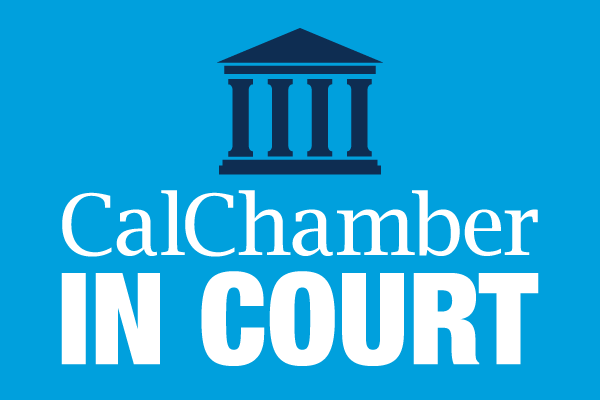
The California Chamber of Commerce this week petitioned the California Supreme Court to review the split decision by the 3rd District Court of Appeal upholding the state’s practice of auctioning greenhouse gas (GHG) emission allowances to raise revenues.
The case is California Chamber of Commerce v. California Air Resources Board.
“While CalChamber remains a strong supporter of a cap-and-trade program to reduce greenhouse gases, it is clear that revenues generated by the California Air Resources Board’s AB 32 implementation program are legally proceeds of a tax that required legislative authorization with a two-thirds majority vote,” said CalChamber spokesperson Denise Davis in a May 15 news release.
“As indicated throughout the petition for review, this case involves serious issues of widespread statewide impact and importance. The appeal is being filed today to validate that position,” Davis said.
Read the appeal at www.calchamber.com.
The CalChamber sued the state Air Resources Board (ARB) in 2012, asserting that AB 32, the GHG emission reduction law adopted in 2006, does not authorize the ARB to impose fees other than those needed to cover ordinary administrative costs of implementing a state emissions regulatory program.
Court Ruling
The appellate court majority found in the April 6 decision that “The system [of auctions] is the voluntary purchase of a valuable commodity and not a tax under any test.” The majority opinion was authored by Associate Justice Elena J. Duarte, concurred in by Associate Justice M. Kathleen Butz.
In his dissent, Associate Justice Harry E. Hull Jr. pointed out: “Given that the auction program is, for Morning Star and businesses that are similarly situated, compulsory if they are to remain in business in California and that the auction program creates, in actual effect, general revenue, I can only conclude that the program is a tax in ‘something else’ clothing and that the auction program, not having been passed by a 2/3 vote in the Legislature, violates Proposition 13.”
The lawsuit does not challenge any of the provisions of AB 32, including cap-and-trade authority, nor the merits of climate change science. The only issue addressed in the litigation is the portion of the regulation that seeks to permit the ARB to allocate to itself GHG emission allowances and to profit by selling them to GHG emitters.
The CalChamber, other members of the business community, members of the Legislature, the Legislative Analyst’s Office and ARB have all highlighted the fact that the auction is not needed to achieve the goals of AB 32 or to have an effective cap-and-trade program.
Robust Cap-and-Trade System
In a May 10 letter to legislators, the CalChamber said an economy-wide cap-and-trade system will be the least costly and least disruptive approach to meeting the state’s emissions reduction goal.
A well-designed program, the CalChamber said, would include robust cost containment measures.
Last year, the Legislature set a 2030 goal of reducing GHG emissions in California by 40% below 1990 levels. This amounts to about a 50% per capita reduction in carbon emissions from today’s levels.
See article in May 12 Alert.

